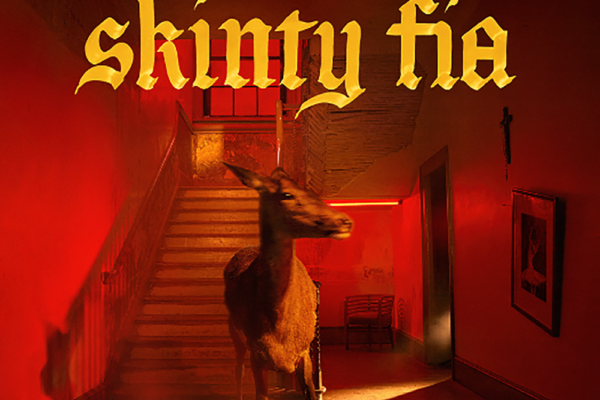[soundcloud url=”https://api.soundcloud.com/tracks/144989427″ params=”auto_play=false&hide_related=false&show_comments=true&show_user=true&show_reposts=false&visual=true” width=”100%” height=”450″ iframe=”true” /]
The Common Marigold is a fairly easy to grow flower in the same way that Folk is a fairly easy to write genre of music. Both are found in the wild in much simpler versions; the flower (according to Wikipedia) is “a single ring of ray florets surrounding the central disc florets” and folk is usually just the acoustic guitar, voice, and maybe harmonica. Under cultivation they complicate themselves, in an English Garden or the Recording Studio. So, to take this metaphor to its logical ends, if folk music were a flower, Marigolden, the second album by Field Report, would be a young specimen of the Bonis Iverensis variety.
Chris Porterfield (you may catch the anagram here), the man at the helm of Field Report certainly owes some sort of debt to his inspirations in helping create this album, and one could probably reverse engineer his record collection by eking out those subtleties in the songs. Not that this is a bad thing. Wayne King in Rolling Stone noted how The Smithereens wore their “rock and roll hearts on their sleeves” and it certainly worked for Oasis; hell, even Bob Dylan launched a career by trying to fit into a sound.
Saying Field Report kinda sounds like Justin Vernon’s Bon Iver would be unfair for two reasons though: 1). They hail from the same scene and therefore naturally sound similar, and 2). Field Report doesn’t have those same mystical qualities that made Bon Iver, Bon Iver such a great album. Marigolden is much more open and honest and straightforward; the question is whether those attributes serve the greater good of the album. And at times they do, at times they don’t.
For instance, there are plenty of examples where Porterfield excels in lyricism, especially in minute phrases, only to fall apart in the larger context. A line from “Michele” has him singing “Blue like the photo of the father and you,” delaying the rhythm of the rhyme between blue and you by shoving in two extra syllables (three if you count the whole word father) delaying the satisfaction from the obviousness of the pairing. But then he goes on and spoils it with “Blue like the label of the beer you always choose.” He talks about how “ancient ice sheets form” and things that are “carved just like soapstone,” and while these words paint pretty pictures, the context suffocates them like a wet blanket.
He is a victim of wanting to be taken seriously, rather than being serious. Phrases like “get these rocks out of my mouth” are meant to be deep rather than simply being deep. And this goes for the musicality as well in songs like “Pale Rider” (or as I came to call it, “The Song Where The Background Vocals Suddenly Became Lead For One Line”), “Wings,” responsible for the above-mentioned line, and the ballad “Ambrosia,” a song for which I’m sure they owe some sort of royalty to Ryan Adams circa Gold (which, in all fairness, is an album that Adams wore his influences on his sleeve).
“Marigolden,” the title track, “Enchantment” and “Decision Day” all seem to have a particular Springsteen flavor to them, especially the former, which seems to take place in The Boss’ second favorite state, Nebraska (also, one record I know Porterfield has listened to on repeat). “Decision Day” stands out among the others because of the tabla pulsating beat that permeates the whole song. “Cups and Cups” finds Field Report donning their best Bon Iver masks with Porterfield even singing in a higher register than he does for the rest of the album.
Sonically, the album does work. As a cohesive unit, Field Report never falters from their sound, the acoustic guitar over synth thing works well for them. And aside from the syncopated (more like arrhythmic) Banjo plucking on “Wings”, this band works really well as a pop band. For the most part, Porterfield sounds like David Gray singing indie rock, and the most successful song on the album is when they stray more pop than rock on “Home (Leave The Lights On),” which can be our generation’s “Send Me On My Way” (google it) if given enough exposure.
But this album was clearly intended to be more than just a single. They link ideas throughout the songs (playing with the notion of names and locations, especially “Michelle” and Nebraska), sounds (the pulsating drum tracks) and even produce a coherent theme (going home) that solidifies Marigolden into terra firma. And that’s saying something for a band that hasn’t quite made a name for themselves yet: the seeds are there, but more cultivation and growth are needed.
Article by: Christopher Gilson



